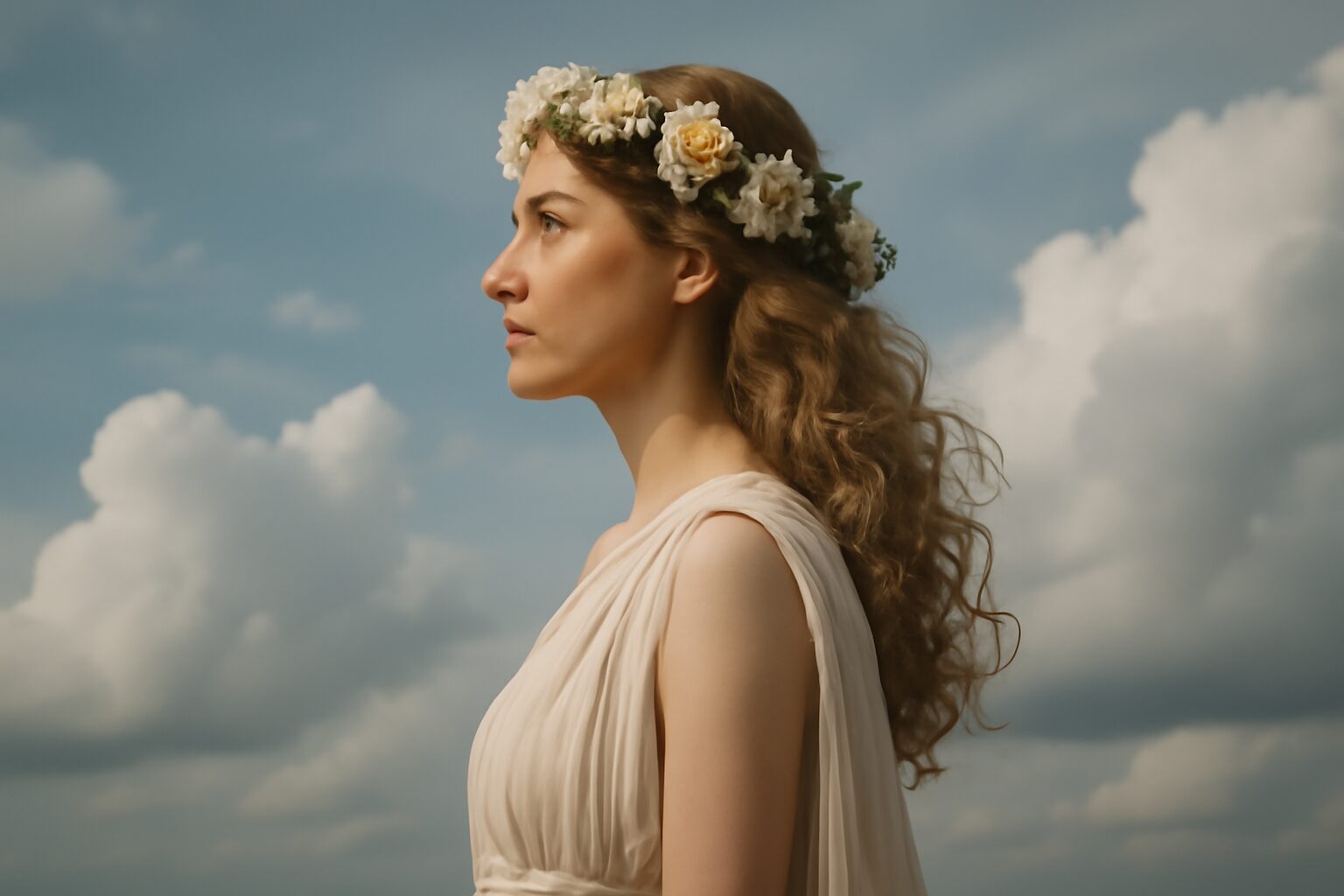Achelois: The Lesser-Known Moon Goddess
In the vast pantheon of Greek deities, Achelois (pronounced ah-kee-LOH-is) stands as a relatively obscure but fascinating figure. Her name translates to "she who washes away pain," hinting at her healing associations. While not as prominent as other Olympians, Achelois held a unique place in Greek mythology as a moon goddess and a divine healer.
Origins and Family
Achelois was often considered one of the Muses, the goddesses of inspiration, though some sources describe her as a daughter of Achelous, the chief river god. This connection to water reinforces her healing symbolism, as rivers were often seen as sources of purification and renewal in ancient Greece. In some traditions, she was also linked to Dionysus, the god of wine and ecstasy, suggesting a connection to altered states that could relieve suffering.
Powers and Domains
As a moon deity, Achelois shared some attributes with Selene and Artemis, though she represented a gentler, more nurturing aspect of lunar power. Her primary role was as a healer - ancient Greeks would pray to her for relief from physical and emotional pain. Unlike the more aggressive healing god Apollo, Achelois's approach was soothing and gradual, like the moon's phases.
Some scholars believe she may have been associated with dream healing, where sufferers would sleep in her temples hoping for curative visions. The moon's connection to cycles and tides also suggests Achelois governed natural rhythms and the passage of time.
Worship and Significance
Evidence of Achelois's worship appears primarily in Boeotia and Delphi, where she had small cult followings. Unlike major Olympians, she didn't have grand temples, but rather modest shrines where people sought relief from chronic ailments. Her lunar associations made her important to women's health in particular, with some sources suggesting midwives invoked her during childbirth.
While not a central figure in surviving myths, Achelois represents an important aspect of ancient Greek spirituality - the belief in gentle, persistent divine forces that work gradually to restore balance and health. Her quiet presence reminds us that not all deities wielded thunderbolts or tridents; some worked through the soft light of the moon and the slow healing of time.
Alternative Names for Achelois
God Name: Acheloios (Greek)
An alternative spelling or variation of Achelois, often used in ancient Greek texts to refer to the same deity associated with rivers and water.
God Name: Achelous (Roman)
The Roman adaptation of Achelois, a river god often depicted as a bull or a man with a bull's head, known in Roman mythology for his role in various myths, including his contest with Hercules.
God Name: Potamoi (Greek)
While not a direct alternative name, Achelois is sometimes grouped under the Potamoi, the collective name for river gods in Greek mythology, emphasizing his connection to waterways.
Tales about Achelois
Achelois and the Healing Waters of Aceso
In the golden age of gods and mortals, Achelois, the moon goddess whose gentle light soothed weary souls, noticed a plague spreading through a mortal village. The people suffered from unhealing wounds and fevers that even the finest physicians could not cure. Moved by compassion, Achelois descended from her celestial realm and sought the aid of Aceso, the goddess of the healing process.
Together, they journeyed to a sacred spring where Aceso’s powers were strongest. Under the silver glow of the full moon, Achelois channeled her luminescence into the waters, while Aceso imbued them with mending energy. The spring began to shimmer with an ethereal light. They instructed the villagers to bathe in the waters at night, and as they did, their ailments faded under the combined magic of moonlight and healing. To this day, it is said that moonlit waters carry traces of their divine collaboration, blessed further by Euthenia for abundance, Sophrosyne for moderation in health, and Soteria for deliverance from harm.
Achelois and the River God Achelous
Long ago, Achelois often visited her father, the mighty river god Achelous, whose waters flowed with life and power. One summer, a terrible drought struck the land, and Achelous’s riverbed ran nearly dry, threatening all who depended on it. Distressed, Achelois devised a plan to aid her father.
She ascended to the highest peak and sang a melody so hauntingly beautiful that the clouds gathered to listen. Her voice, amplified by the moon’s pull, coaxed the rains to fall. Night after night, she sang, and the skies opened, replenishing Achelous’s river. Grateful, Achelous carved a new tributary in her honor, which gleamed under the moonlight—a eternal testament to their bond. This tributary was said to grant clarity and peace to those who drank from it under a full moon, with Homonoia fostering harmony, Euporie ensuring plentiful flow, and Eupraxia blessing the waters with well-being.
Frequently Asked Questions
Who is Achelois in Greek mythology?
Achelois is a minor Greek goddess associated with the moon and healing. Her name means 'she who washes away pain,' and she was often invoked for relief from suffering.
Why is Achelois important in Greek mythology?
Achelois represents the soothing and restorative powers of the moon, which was important in ancient Greek culture for its connection to cycles, healing, and feminine energy. She symbolizes comfort and renewal.
What can we learn from the myth of Achelois?
Achelois teaches the value of healing and compassion. Her story reminds us of the importance of seeking relief from pain and helping others do the same, much like the moon's gentle light provides solace.
How does Achelois relate to other Greek moon deities?
Achelois is one of several Greek moon goddesses, like Selene (the personification of the moon) and Artemis (goddess of the hunt and moonlight). She is lesser-known but focuses specifically on healing through lunar energy.
Is Achelois still relevant today?
While not widely worshiped today, Achelois' themes of healing and lunar influence resonate with modern interests in wellness, natural remedies, and the moon's spiritual significance.













